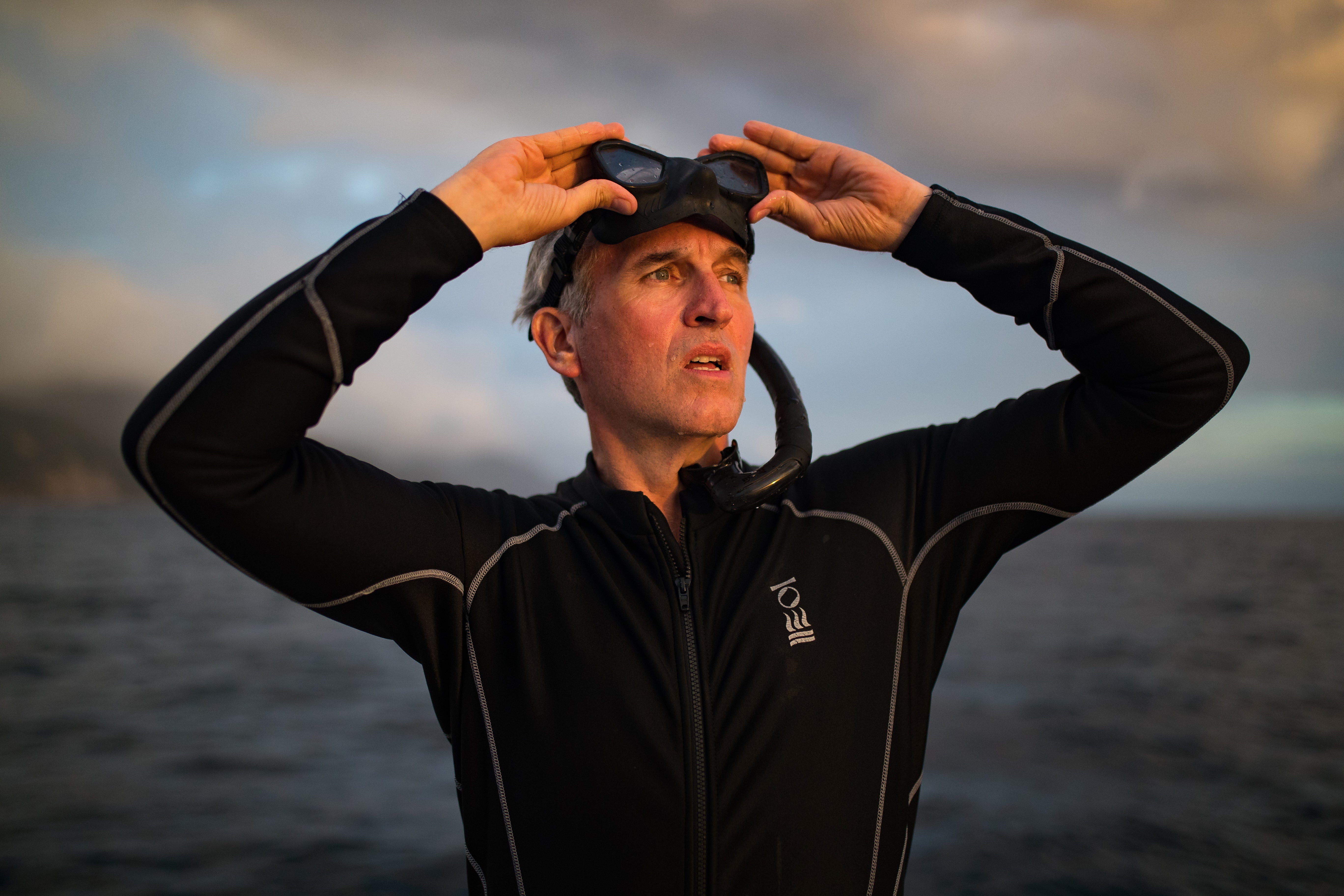Brian Skerry on whales: We’re sharing this planet with this alien intellectual species
Narrated by Sigourney Weaver, new Disney+ series Secrets Of The Whales documents the mysterious lives of ocean giants, as Danielle de Wolfe discovers.

As Earth Day approaches on April 22, Disney+ is here to remind us that the planet – in particular, its expansive oceans – are ours to save. The brainchild of National Geographic explorer and photographer Brian Skerry, a new four-part documentary series called Secrets Of The Whales shows just how similar humans are to these majestic, ocean-dwelling giants.
Filmed over the course of three years across 24 locations, the series sees Skerry, 59, document the lives and interactions of a variety of whale species – including a world first, capturing a sperm whale nursing her calf for the very first time. Narrated by Alien and Avatar actress Sigourney Weaver 71, and executive produced by Titanic and Avatar director James Cameron 66, the series sets out to challenge our perceptions of these warm-blooded creatures.
Ahead of Secrets Of The Whales arriving on Disney+, we discover more from Skerry.
What initially made you want to create Secrets Of The Whales?There’s a multi-billion-dollar whale-watching industry on Planet Earth where people go on boats all over the world to see a whale jump or a tail, they eat a hamburger and then they go home, but they don’t really know so much about those lives. So, with Secrets Of The Whales, it was really about bringing people into the lives of these whales.
Are humans and whales more similar than we think?
We’ve often been very clinical and how we view wildlife – we see ourselves apart from it or above it. But if we begin to understand that whales have personality, they give each other names, they isolate by dialect, they have singing competitions, they have food preferences, they mourn their dead, they do all of these things that used to be thought of as only the domain of humans but are not so. So, we’re sharing this planet with this alien intellectual species that does things much like we do.
Is there anything that might surprise viewers?
So, in the place where (orcas) are catching sea lion pups, Patagonia, they’re the only orca in the world that do that. The orca in New Zealand are eating stingrays and the ones in the Norwegian Arctic are eating herring. So, it’s this ethnic food preferences, international cuisine, that makes that culture.
How did Avatar director James Cameron become involved in the project?
I knew Jim – we had met several times over the years, I think there was a bit of mutual respect; I certainly had great admiration for his genius and his work. He is a National Geographic Explorer… He’s a master storyteller. He can create everything from fictional characters and scenes and sets and story narratives, he can invent the equipment that’s needed to film it in 3D and do things that haven’t been done before. But he’s also a pioneering ocean explorer who, you know, builds his own submarines and goes to the deepest part of the ocean to understand.
And you managed to get Alien and Avatar actress Sigourney Weaver involved?
Bringing in Sigourney Weaver as the narrator was fantastic. I always thought that would have been fantastic because that female voice, especially for these whales, that are often led by females, was brilliant. So yeah, on every level, it was sort of organic.
At one point, we see you intervene and help a trapped orca; do you ever worry about upsetting the natural balance of the oceans?
I’ve done sea turtle projects where you see the little leatherback babies running down the sand to the ocean, and they’re getting eaten by birds. It breaks your heart, but you leave it alone, because that’s pure nature. If I see a sea turtle wrapped in line, if I can, I will cut it out, because that’s not natural… In the case of the orca, these are air-breathing animals. Even though that animal could temporarily breathe, you don’t know if that’s going to change as it gets more entangled. You’ve got its family sitting there watching it and it’s slowed down and stopped essentially asking for help. I think in a case like that, I’d rather beg for forgiveness than ask for permission.
How can humans play their part in helping save the oceans?
We have to realise that all of our actions have consequences. That we don’t live on this planet in a vacuum, that we are intricately connected to nature and everything we do matters. We’re dumping 18 billion pounds of plastic every year into the ocean, and we’ve lost 90% of the big fish in the ocean post-World War Two and we’ve lost half the world’s coral reefs… It can be as simple as finding better ways of fishing and not having vertical lines that animals get entangled in – and that’s going to take some collaborative efforts. Or it could be just being better consumers, informed consumers, voting for people who care about conservation and science.
Does the feeling of awe ever wear off when you interact with these ocean giants?
I mean, it never gets old – if anything, it’s addictive. I’ve been doing this for decades and every year I swear, it gets better. As a young boy, I had dreams and fantasies of doing this kind of thing and you have certain preconceived notions, but the reality ends up being better than those fantasies… You have to get the footage, but there’s a scene in the sperm whale film where I put my camera down – I’m playing with a six-month-old calf out in the middle of the ocean. And at some point, you just have to stop working and just soak it up.
Secrets Of The Whales from National Geographic premieres on Earth Day, April 22, on Disney+
Bookmark popover
Removed from bookmarks